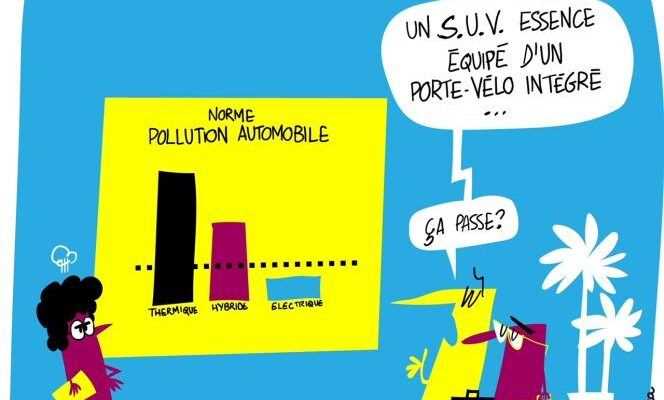“It’s going to be a real big fight”, warns the MEP (Europe Ecology-The Greens) Karima Delli, president of the European Parliament’s transport committee. A battle that has even started and rages behind the scenes: that of the future Euro 7 standard of the European Union (EU), which sets the maximum limits for pollutant emissions for new vehicles.
This will not come into force until after 2025, but the timing is crucial. The new regulations are being written by the European Commission, which should propose a first text between December 2021 and January 2022. The Parliament and the European Council will amend it immediately. Hence an intense lobbying campaign opposing environmental protectors and industry defenders.
The French Minister of the Economy, Bruno Le Maire, has already announced the color. “Negotiations are underway on the next Euro 7 standard. Let us be clear: at this stage, this standard does not suit us. Some of the proposals that are circulating are excessive. Our manufacturers will not be able to keep up ”, he announced, in mid-April, on a daily basis Le Figaro in an interview with Carlos Tavares, the boss of Stellantis. The Euro 7 standard should, in fact, be much more demanding than the current standard (Euro 6), under the green pact for Europe which aims for “zero pollution” by 2050.
“It kills all gas vehicles”
A panel of independent experts has issued proposals on the basis of which the Commission will make its arbitrations. These provide in particular a ceiling for emissions of very toxic nitrogen oxides divided by two, three or four (depending on the scenario selected), but also a consideration of pollutants hitherto ignored by the Euro standard (particles ultrafine, methane, nitrous oxide, ammonia, formaldehyde) and enhanced test conditions.
“Taken independently, these technical criteria appear reasonable; it is the combination that makes them difficult to respect ”, we explain to Bercy, which also evokes “Economic factors” to justify these “Worries”. The introduction of new technologies to comply with the Euro 7 standard will have repercussions on the price of vehicles which the ministry estimates in the order of 1,000 to 1,500 euros. Bercy points to the risk of a counterproductive effect on the necessary renewal of the vehicle fleet to reduce air pollution.
In Bruno Le Maire’s office, we are especially worried about the automotive industry and we wonder about the relevance of asking manufacturers to“Invest billions of euros in technologies that will only be transitory” with the scheduled end of the sale of new thermal vehicles by 2035. “The industry is prepared to take up the challenge of stricter vehicle emission standards, but on condition that its cost is acceptable”, summarizes Marc Mortureux, Managing Director of the Automotive Platform, which represents the sector in France.
You have 56.29% of this article to read. The rest is for subscribers only.
